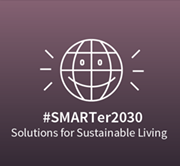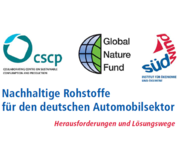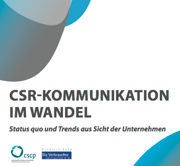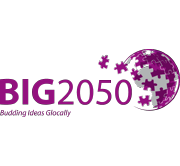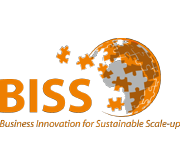
All projects
The CSCP has worked with the Global e-Sustainability Initiative (GeSI) to review the potential benefits of ICT solutions for broader society – including more sustainable lifestyles ... Read more
Online communities have been playing an increasingly important role in supporting grassroots initiatives in the area of sustainability and social innovation in jointly finding solutions for societal challenges ... Read more
Extraction of metallic raw materials entails environmental and social challenges. Since Germany itself extracts only small amounts of metallic raw materials, German automotive companies depend on imports to cover their demands. Not only since the resolution on Human rights and transnational corporations and other business enterprises ... Read more
Bhutan, a small kingdom in the Himalayas between India and China has put “the Middle Path” at the centre of its development endeavours. The concept emphasises the importance of environmental and cultural preservation at the core of its development. As a consequence"Gross National Happiness" (GNH) replaces ... Read more
Recently established, the INNEON network for eco-innovation investment aims to extend the public and private funding sources available for eco-innovation and social innovation in Europe. INNEON will provide a unique forum dedicated to the interaction between a select cohort of innovators and relevant investors. Read more...
Many companies operate within a narrow section of product lifecycles. How can manufacturers reach beyond the boundaries of their own operations to influence sustainability across product lifecycles from responsible raw materials extraction to consumer use and disposal? ... Read more...
China is the largest consumer market. Therefore, the potential to promote resource efficiency in China is enormous. The China Council for International Cooperation on Environment and Development (CCICED) initiated the Task Force on Sustainable Consumption and Green Development. Read more... EN CN
Each and every one of us makes dozens of large and small decisions every day. Should we buy locally grown apples or rather strawberries shipped from far away. The NRW Sustainable Lifestyles project aims to help people make informed decisions while at the same time [...] Read more...
What opportunities does sustainability-driven innovation offer the ICT sector? How can new business value be drawn from sustainability? These are just some questions the ICT sector is facing today. Answering these and moving forward with a sustainability driven growth agenda was the aim of a Sustainable ICT Innovation Workshop. [...] Read more...
Many companies are engaging in corporate social responsibility activities. Yet many of these same companies are challenged to effectively communicate with consumers about their efforts. To understand the information needs of different target markets, the CSCP undertook a survey of consumer-oriented CSR communications [...] Read more...
The Budding Ideas Glocally for 2050 project, also known as BIG2050 aims to demonstrate that, not only is sustainable living possible today, it will be also be considerably more so in the year 2050. By analysing consumption patterns and how these patterns influence lifestyles in five different countries, BIG 2050 aims to [...] Read more...
New sustainable business models can drive a significant change in the way we live our lives, such as sharing products, swapping goods or purchasing services rather than products. How can the impacts of sustainable business models be scaled up from a niche towards a mass market application? Read more...
With the aim of making sustainability easy, improving lives for all, the CSCP launched a series of events named the “Workstudios”. These multi-stakeholder events combine keynote speeches, TED-style panelists, visioning workshops, strategic planning and match-making activities [...] Read more...
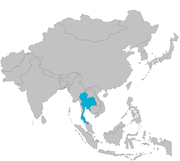
Thailand has long been recognized as a highly competitive Asian base for vehicle production. The industry has experienced rapid growth over the past decades and this growth has had environmental consequences. SMEs represent a large proportion of the auto and automotive parts sector in Thailand. Read more...
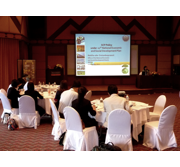
Thailand has among the most highly developed SCP policy frameworks in Asia. The success of sustainable consumption approaches is in part connected to the Thai tradition of being a sharing society. Read more...
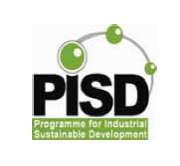
The Pakistan industrial base is expected to expand significantly in the coming years. It is of paramount importance that the planned industrial estates are developed in a sustainable manner to minimise negative environmental and social impacts. Read more...

Energy efficiency offers among the greatest quickest, and most cost-effective options to reduce energy consumption and mitigate climate change. There are various technologies and policy [...] Read more...
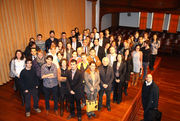
On the 14th of February 2012, the CSCP together with the Regional Activity Centre for Cleaner Production, Mediterranean Action Plan, Boğaziçi University Sustainable Development and Cleaner Production Center and [...] Read more...
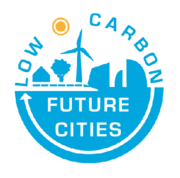
Increasing urbanization and climate change are two of the great challenges of the 21st Century. Cities cover only 1% of the Earth‘s surface, but are already home to about 50% of the Earth‘s population. Up to 80 % of global greenhouse gas emissions are estimated to originate in urban areas, providing large mitigation potentials [...] Read more...

Today, resource efficiency (RE) and cleaner and safer production (CP) are fundamental elements in the progression towards a future low-carbon economy and society. Improvements in resource management play a key role in limiting energy consumption and greenhouse gas emissions [...] Read more...

Is it possible to improve human health and life quality in an ageing European society while at the same time reducing current levels of energy, transport and resource use? Social innovation and significant changes [...] Read more...
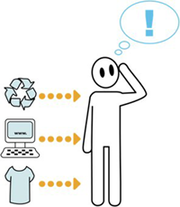
Sustainable Entrepreneurship is becoming a powerful tool that entrepreneurs can seize to meet their social, environmental and economic objectives. Sustainable entrepreneurs are critical actors for changing existing sustainable consumption and production patterns [...] Read more...

concepts for future sustainable lifestylesSustainable lifestyles and consumption choices are of increasing interest to consumers and researchers. To engage a wide cross section of actors and increase the impact of individual lifestyle choices it is necessary to [...] Read more...
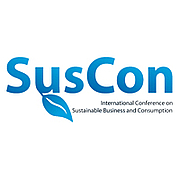
In today’s society lifestyles are rapidly changing. What attracts consumers today might be out of date tomorrow. Regardless of changing consumer preferences one fact remains consistent: lifestyles are imposing ever greater demand on increasingly scarce resources. [...] Read more...

Growing populations coupled with increasing patterns of consumption across the world call for a change in consumption towards more sustainability. Progressive projects and initiatives that encourage the shift toward sustainable consumption patterns [...] Read more...

Education plays an important role in changing lifestyle patterns. Teenagers are at a crucial age as they start to build their own ways of consuming. They observe the daily habits of people [...] Read more...
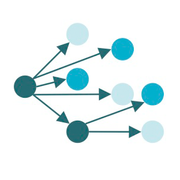
Successful dissemination of sustainable products and services is necessary to support sustainable lifestyles. As a cooperation and communication tool an online platform [...] Read more...

What is measured has a higher chance of being effectively managed. Indicators are measurement instruments and are therefore an important tool for fostering Sustainable Consumption and Production (SCP). Read more...

Efficient communication and interaction between policy makers, administrative agencies and the scientific community is needed to create a more sustainable society. Only through a network of these different actors is it possible to identify needs and potential solutions. Read more...

Successful dissemination of sustainable products and services is necessary to support sustainable lifestyles. As a cooperation and communication tool an online platform can enable targeted communication between relevant stakeholders [...] Read more...

The business benefits of sound environmental management may not always be obvious for small and medium sized enterprises. Moreover, knowledge of the various environmental management tools can also often be low. Read more...

The building and construction market with its emerging interior renovation and decoration activities is booming in China. But there are severe health and environmental [...] Read more...
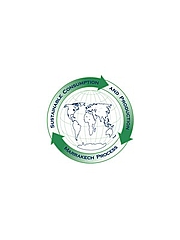
Consumption and production patterns are becoming increasingly global in nature and international cooperation is needed to enable societies to shift towards more sustainable lifestyles. Read more...
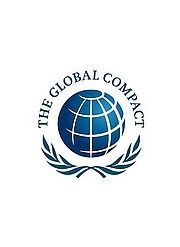
Supporting sustainable consumption is becoming an ever more important issue for business. New consumer movements, such as the LOHAS (Lifestyles of health and sustainability) are emerging. Read more...

What strategies are necessary to enable issues such as climate change, resource scarcity, biodiversity loss, unhealthy eating habits and poor social conditions to find their way into the mainstream media? How can a broader cross section of the population be educated on sustainable consumption and environmentally [...] Read more...
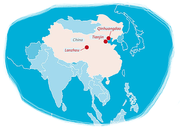
Since the 1980s China undergone unprecedented economic growth and urban areas continue to rapidly modernise. However, this economic growth has taken its toll on China’s environment and natural resources. Severe water and air pollution in particular are threatening ecosystems and human health. Read more...
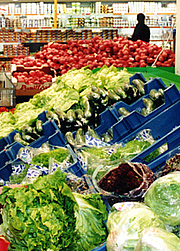
An effective shift toward Sustainable Consumption and Production (SCP) will require new and different roles for different actors. The retail sector has potential to affect change in society like no other industry given their [...] Read more...

The demand for natural resources is increasing across the world and in several cases resource scarcity is a major factor behind increasing resource prices. Many experts predict that this will be a long term trend. As answer to resource scarcity and a vital element [...] Read more...

Policy makers are in a unique position to boost resource efficiency. Reducing resource consumption and increasing economic and social wellbeing will provide substantial benefits for both society and the planet. Read more...

Energy efficiency is one of the quickest and most effective methods to reduce greenhouse gas emissions and improve air quality. Efficiency makes energy available to people while at the same time [...] Read more...
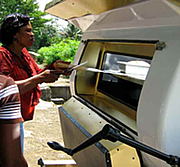
Self sufficient and environmentally friendly development in rural Africa is a priority for alleviating poverty and building sustainable communities. The dissemination of a solar oven technology for bakeries in rural regions in Africa supports [...] Read more...

Only what we measure can we know. To increase the sustainability of consumption and production it is therefore necessary to develop sound methods to measure environmental impacts along product value chains. Read more...
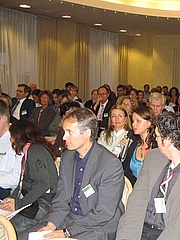
The topic of sustainable consumption and production is rising to the top of many political agendas. However there remain many unanswered questions, such as how to best promote sustainable lifestyles [...] Read more...

Combine the knowledge of two countries to establish new global standards for SCP. Germany and Japan are among the leaders in environmental technologies, and they are currently pursuing advancement in the strategic issue of sustainable resource management. Read more...

Analysing hot-spots of resource consumption is an effective way to identify the potential for increasing resource efficiency in global value chains. For this reason hot spot analysis can play an important role [...] Read more...
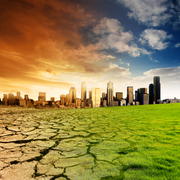
The phenomenon of climate change affects the lives of people in many ways. Among others it is transforming employment prospects and incomes around the world. Particularly in developing countries, jobs and livelihoods of many people [...] Read more...
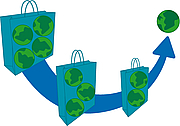
Business has a huge role to play in encouraging sustainable ways of living. As consumers become more and more aware of the environmental impacts of consumption, sustainable business strategies will increasingly offer new opportunities [...] Read more...

An environmentally sound and socially responsible economic development is a declared aim of most political leaders around the globe. Despite this stated aim, policy frameworks and an absence of integrated decision-making processes [...] Read more...

Today, resource efficiency (RE) and cleaner and safer production (CP) are fundamental elements in the progression towards a future low-carbon economy and society. Improvements in resource management play a key role in limiting energy consumption and greenhouse gas emissions [...] Read more...

This project evaluates SCP policy frameworks in eight Baltic countries with respect to the potential to stimulate SCP innovation in small and medium sized enterprises (SMEs). Focus countries include [...] Read more...
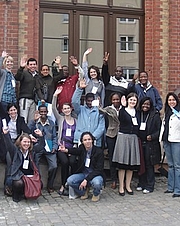
Sustainable entrepreneurship is a relatively new concept. Nonetheless, interest and activities in this new field has grown across the world. Increasingly, creative entrepreneurial individuals are acting upon their environmental and social convictions to support the international sustainability agenda. Read more...

Sustainable Consumption and Production (SCP) has significant potential to make meaningful contributions to sustainable development on the African continent. In order to fully make use of this potential it is necessary to implement coherent and effective SCP programmes on the ground. Read more...

Media can play a key role in promoting sustainable consumption and production (SCP). While there are signs that the mainstream media is beginning to approach SCP issues a number of challenges remain. Read more...

Sustainable products and services offer untapped opportunities for future oriented entrepreneurship and innovation. Some 80% of the life cycle environmental and social impacts that arise from products are determined during its planning and development phase alone. By fusing creativity, understanding and entrepreneurship, eco-friendly, fashionable, and fair products and services can be realised. Read more...

Research can offer important insights to a diverse range of stakeholders as well as increase the SCP knowledge base to enable strategic priority setting. For envisaged changes to become reality, research needs to be [...] Read more...
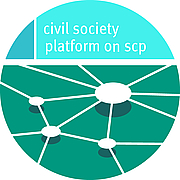
The civil society platform on sustainable consumption and production is working to make SCP a reality by supporting the engagement of civil society in SCP research and policy processes. Read more..
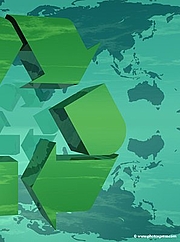
Effective recycling systems are central to resource conservation and material efficiency. Recycling transforms waste into a resource that can be reintegrated into production processes. Consequently, the application of recycling technologies [...] Read more...

In Pakistan there is a pressing need for a shift toward greater energy and resource efficient (ERE) production processes. This shift requires a technological transformation as well as increased knowledge capacity in particular in small and medium-sized enterprises (SMEs). Read more...

The SWITCH-Asia Network Facility tackles the most pressing environmental challenges in Asia. It plays a key role for the switch toward more sustainable consumption and production (SCP) patterns in Asia’s rapidly transforming [...] Read more...
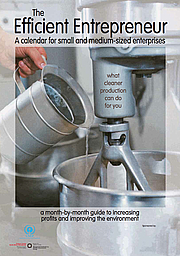
Saving resources is not only about mitigation of pollution and climate change; it is also about creating new growth with the resources still available in a world where populations and ever increasing demand for more products are still growing. The efficient entrepreneur is aware that growth is linked to [...] Read more...
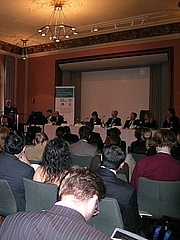
The Expert Conference on the Marrakech Process – Creating Solutions for SCP provided a platform for experts from around the world to collaborate on finding pathways to sustainable consumption. The conference enabled the global [...] Read more...

The transition to sustainable patterns of consumption and production on global scale requires dialogue and coordination among all relevant actors. The Marrakech Process aims to assist countries in their efforts to green their economies by developing greener business models and consumption patterns. [...] Read more...

Small and Medium sized Enterprises (SMEs) are a major source of waste and emissions of CO2 and account for up to 90% of global industrial output. SMEs are also the biggest source of employment, economic development and innovation in local societies. Read more...

Resource efficiency forms the backbone of a sustainable economy. It enables companies to produce products with fewer resource inputs and by extension reduce environmental impacts, including emissions of greenhouse gases [...] Read more...

Value chain actors play an important role in shifting the behaviour and lifestyles of customers in favour of sustainable consumption. In order to cope with their joint responsibility to promote sustainable consumption, retailers and manufacturers are in need of a collective strategy. Read more...

Small and medium-sized enterprises (SMEs) play a key role in innovation, economic growth, employment creation and the provision of goods and services to underserved communities. Adopting sustainable consumption and production (SCP) as an overarching [...] Read more...
